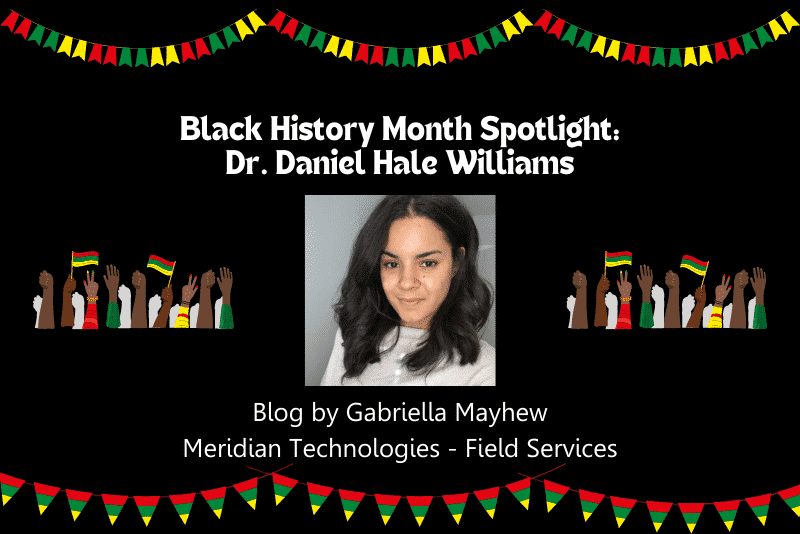In February, we celebrate Black History Month. This year, the spotlight is on Black Health and Wellness. Considering the current COVID-19 pandemic, this theme could not be more appropriate.
But there’s another reason why it’s so important to highlight health and wellness this month.
February is also American Heart Month.
I’d like to take a moment to introduce you to Dr. Daniel Hale Williams: a prominent pioneer in the advocation of Black presence in medicine as well as one of the first physicians to successfully perform open heart surgery in 1893.
Williams was born in Hollidaysburg, Pennsylvania in 1856. Rather than continue in his father’s footsteps and become a barber, he instead studied medicine at Chicago Medical College. He opened his own practice and became the very first African American to work with the city of Chicago’s street railway system.
With discrimination in that time preventing African Americans from being admitted to hospitals and Black doctors being refused to work on staff, Dr. Dan opened Provident Hospital and Training School for Nurses in 1891, which was the first hospital to have a racially integrated staff.
In 1894, Dr. Dan became the chief surgeon of the Freedman’s Hospital, which treated formally enslaved African Americans. In his time there, he continued to provide opportunities for Black doctors and nurses and co-founded the National Medical Association, an organization for Black medical practitioners. Throughout the remainder of his days, he travelled to different medical institutions and continued to fight for racial equality for African Americans in the medical field.
Dr. Dan is an extraordinary reminder of why it’s so important to highlight Black Health and Wellness in a month that also acknowledges American Heart Health. BIPOC are, statically, at a higher risk of suffering from complications of heart disease than white Americans. The CDC has stated that heart disease is one of the leading causes of death in BIPOC. Though genetics contribute to this statistic, social and racial factors have just as large of an impact. Racial stress, residential segregation, access to resources, and lack of racial equality in the medical field are all contributing issues to the higher risk of heart disease to African Americans.
Black Health and Wellness is a topic near and dear to my heart. My grandmother passed away in her 50’s due to heart disease and members of my family suffer from high blood pressure and other heart disease related complications. I hope that this conversation doesn’t end on March 1st. I hope that we can continue in the footsteps laid out by Dr. Dan and work towards a diverse and inclusive medical field that provides adequate healthcare resources to every American citizen regardless of race or economic status. The health and wellness of Black Americans is essential to the health and wellness of all Americans.
How are you caring for your heart? Here’s a link to some heart healthy African American recipes to try out:
https://www.nhlbi.nih.gov/sites/default/files/publications/WEHL-RecipeBook_508.pdf
Sources:
https://www.bhg.com/holidays/traditions/black-history-month/black-history-month-theme/
https://www.biography.com/scientist/daniel-hale-williams
https://www.medicalnewstoday.com/articles/cardiovascular-disease-and-race#heart-health
